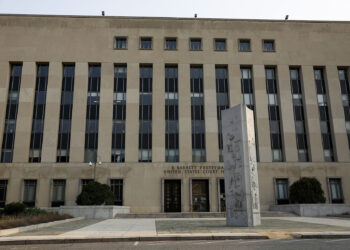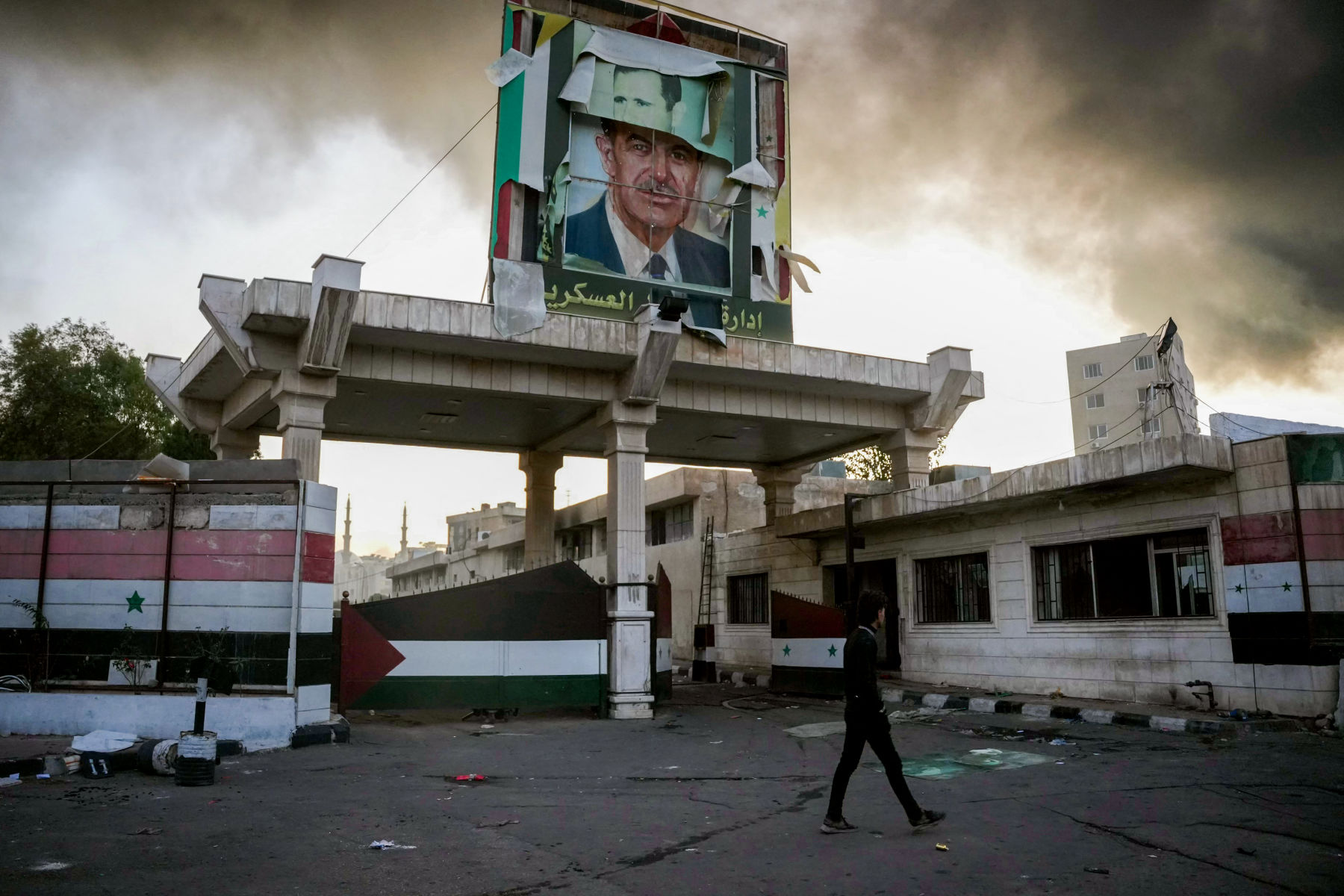Mike Eisner is the General Counsel and Chief Operating Officer of DAWN.
عربي
A microcosm of the worldwide battle between democracy and authoritarianism, the rule of law and the law of the jungle, is playing out right now in a federal court in Washington, D.C. Saudi Crown Prince Mohammed bin Salman (MBS) has filed a motion to dismiss a lawsuit brought by Hatice Cengiz, the widow of deceased Saudi citizen and U.S. resident Jamal Khashoggi, and our organization, Democracy for the Arab World Now (DAWN), which Khashoggi founded.
The two plaintiffs are seeking to do what powerful governments have failed to do—hold MBS and his chief underlings accountable for the murder of Khashoggi. Our success in this lawsuit will do more to rein in global thugs seeking to target U.S. residents and dissidents abroad than any action taken to date.
The facts of the case are well-established. Saudi officials lured Jamal Khashoggi to the Saudi Consulate in Istanbul instructing him to seek official documents to allow him to civilly confirm his marriage to Cengiz. At the consulate, a Saudi hit team tortured, suffocated, murdered, and dismembered Khashoggi. In ordering Khashoggi's murder, MBS succeeded in silencing a leading advocate of reform, who had only months before founded DAWN to defend human rights and promote democracy for Saudi Arabia and the rest of the Arab world.
Two years after the murder, we sued MBS and his co-conspirators under the Alien Tort Statute and the Torture Victim Protection Act. These statutes give U.S. courts jurisdiction to hold liable foreign officials who commit torture or extrajudicial killing and have become important tools of international accountability for gross human rights abuses.
In his motion to dismiss, MBS glosses over the facts of the grisly crime. Caught red-handed, the crown prince instead raises a grab bag of procedural and non-substantive defenses. MBS argues that the court lacks jurisdiction because the murder had no U.S. connection, despite the fact that a key step in the murder took place right here. To set the conspiracy in motion, MBS instructed his brother Khalid bin Salman, the then Saudi Ambassador in Washington, to deceive Khashoggi into leaving the United States so that he could be targeted by a Saudi hit squad in Istanbul. More significantly, MBS was determined to silence Khashoggi because of Khashoggi's efforts and political impact in the United States. Through Khashoggi's work at DAWN and his Washington Post column, Khashoggi was threatening MBS's standing with his most powerful patron, the U.S. government. Indeed, in no small part because of Khashoggi's revelations concerning MBS's brutal conduct, Congress was seeking to block billions in weapons sales to Saudi Arabia.
In discounting the significance of the United States to the murder, MBS takes note of allegations that Saudi Arabia has targeted Saudi citizens not just in the United States, but also in other countries, including Canada, Jordan, Kuwait, Morocco, and the United Arab Emirates. But a defendant cannot evade jurisdiction in the United States because he has committed similar crimes elsewhere.
To date, powerful actors, including the United Nations and two U.S. presidents, have reviewed solid and compelling evidence of the crown prince's involvement in the murder but declined to impose any penalty on him. Under pressure to act after the release of an intelligence report establishing MBS' responsibility for the murder, the Biden administration did do something, announcing the Khashoggi Ban, a new visa restriction policy on "individuals who, acting on behalf of a foreign government, are believed to have been directly engaged in serious, extraterritorial counter-dissident activities."
The Khashoggi Ban represents a step forward, an important recognition of a troubling trend of autocratic governments, including China, Russia, Iran, Turkey, and others, targeting dissidents abroad. Transnational repression has vastly expanded in recent years to include surveillance, threats, harassment, kidnapping and murder, acts meant to silence and terrorize exile communities. The Biden administration designed the ban to provide some measure of deterrence against such acts, but it sabotaged the ban right out of the gate by failing to apply it to the architect of Khashoggi's murder Crown Prince MBS, who continues to attack and terrorize Saudi dissidents abroad.
In the face of executive inaction, the U.S. judiciary has the responsibility to step in to fill the accountability void. That's by design, as the law instructs U.S. courts to eschew political considerations in doling out justice to paupers and crown princes alike. In ruling on MBS' motion to dismiss, the U.S. district court will concern itself only with the law and the facts as set forth in our complaint. Our objectives are simple: truth and a measure of accountability. If we are successful, this court's decision will reverberate throughout the world, and make autocrats reconsider whether they will get away with targeting dissidents in the United States and elsewhere.
*The OpEd was updated on September 18th to provide the correct link to DAWN's reply to the motion to dismiss.





































